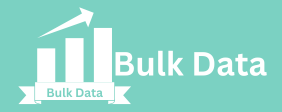There’s a common misconception that data analysis is a highly complex and technical task, reserved exclusively for data scientists and analysts with years of experience. And that’s simply not true . Many businesses paraguay phone number data fall into the trap of thinking that data analysis requires only complex tools, sophisticated algorithms, and advanced programming knowledge. While these tools and skills are valuable in more in-depth analyses, such as predictive analytics or statistical modeling, we often forget the power of manual analysis, which provides invaluable insights using simple techniques that are accessible to any professional, Regardless of their technical background.
At IKAUE, we know that data is key to decision-making in any business, and we’ve spent years refining different ways to process it. But I must confess one thing: The vast majority of the insights we gain and the proposals we make come from looking at simple tables (in Excel or dashboards) and small graphs. These are the result of very simple and rapid processes that have little to do with machine learning and predictive algorithms.
This is what we call “manual analysis.” These are operations that a single analyst, using their tools, can perform without much effort.
This post explores the 8 fundamental how to organize preparation for the dipifr exam when there is very little time left? types of manual analysis that every professional should master to better understand their data. We also introduce 24 different key techniques for analyzing your data in a concrete and direct way. These techniques, When organized. Will help you strategically “scrape the data,” identify patterns and trends, and draw conclusions that allow you to optimize your strategies and achieve your goals.
Enough of starting with the difficult stuff!
The value of manual analysis
Although everyone understands the importance of data for a business. Many professionals feel intimidated by the complexity of the most advanced tools and techniques. Can you relate to that? even with very little training. Our minds spend all day analyzing: Which gambler data supermarket product is more profitable, the individual one or the 6-pack? How can I lower my monthly expenses at home? What’s the fastest way to get to the movies? How much have they taken advantage of that friend of yours who always needs the latest iPhone model?
There’s a perception that data analysis is the exclusive domain of technicians. And this creates invisible barriers for those who want to get started in the world of data analysis. The reality is that anyone can perform analysis with accessible tools like Google Analytics 4, Looker Studio, or even Google Sheets. You don’t need advanced programming knowledge. A particularly mathematical mind. Or expensive software licenses to start extracting value from our metrics and dimensions.
